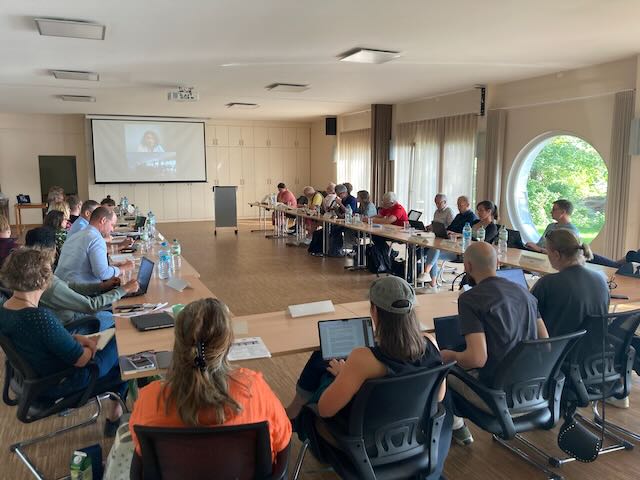European Conference: Towards a Social-Ecological Bioeconomy
What political frameworks are necessary for the future bioeconomy in Europe to be both socially just and ecologically sustainable? The conference, organized by denkhausbremen and featuring high-profile guests, aimed to provide answers to this question. Around 40 participants from nine different European countries gathered for a three-day retreat in Lychen, near Berlin. Representatives from the European Commission, the German government, academia, and civil society engaged in panel discussions following numerous keynote presentations. An artistic program provided a creative backdrop, rounding off the successful event. A key point emphasized throughout the conference was the limited availability of bio-based resources, given that ecosystems are already under strain and suffer damage from current biomass uses. Additionally, the potential danger was highlighted that the so-called Global South might primarily become a supplier of raw materials for a European bioeconomy. Ultimately, however, participants agreed that the bioeconomy could be part of the solution – provided the right political frameworks are in place. The discussions were able to tie into current political processes, as the EU is currently revising its bioeconomy …










